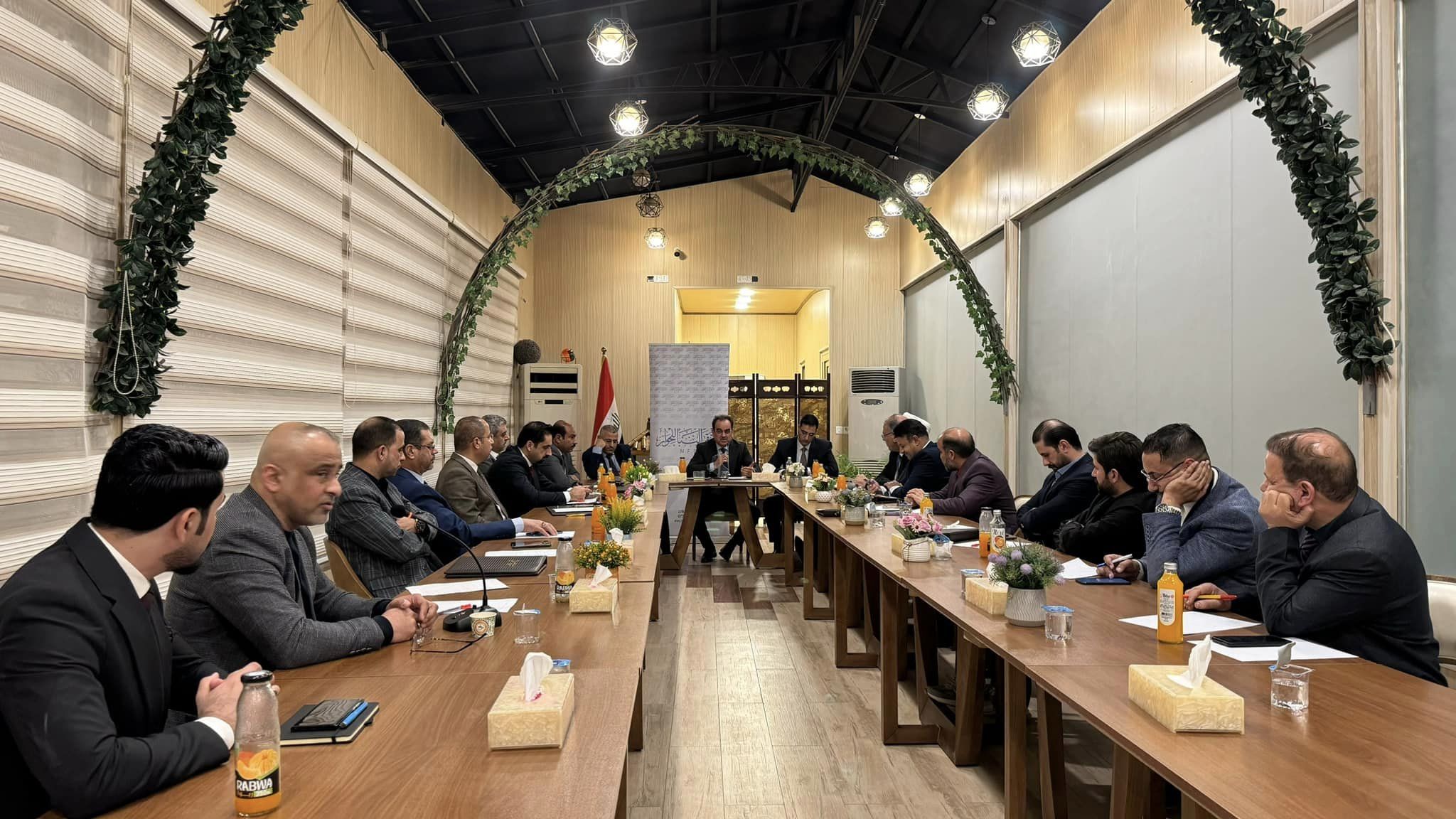Within its continuous efforts to host delegations, officials, academics, and cultural figures from inside and outside Iraq, the Al-Nabaa Forum for Dialogue received a delegation from Kurdistan, including a group of lawyers, journalists, and activists.
Regarding the visit's progress, Ali Al-Talqani, the head of the forum, said in an interview that this visit came when Karbala and Najaf became centres for culture, knowledge, and global openness.
Al-Talqani added that the forum conducted a tour that included visits to Shrines and Holy sites and fruitful spiritual, scientific, and national meetings with religious scholars from Najaf and Karbala.
Al-Talqani continued that the visit didn't miss the chance to mention the dominance of politics and its impact that some people tried to touch sensitive strings by spreading hatred and sectarian between citizens for partisan interests. However, through academic, cultural, and media centres, we are determined to contribute to improving the general social situation and confront anything that makes society apart."
The relationship between Kurdistan and Baghdad
The activist and writer Sardar al-Harki said, "An official delegation visited Najaf and Karbala and met with several figures and religious scholars, as well as the Al-Nabaa Forum for Dialogue."
He added, "In these meetings, we focused clearly on the important points regarding the relationship between Kurdistan and Baghdad, as well as confronting corruption and injustice that affected both the Arab and Kurdish communities, causing significant problems. We also focused on the reduced salaries of Kurdistan's employees, in light of the political conflict and the solutions to the state budget, without putting pressure on the capital and Kurdistan."
The historical roots of Shia'h-Kurdish relations
He continued, "We discussed the role and important position of Shia' throughout Iraq's history in various eras, particularly the prohibition of fighting with the Kurds."
Al-Harki appreciated the warm reception and generous hospitality, affirming that the visit was very fruitful and that they benefited greatly from discussions with grand scholars and intellectuals, calling for visits to Kurdistan and social communication.
Regarding the role of intellectuals, Al-Harki said, "Intellectuals and writers can fix intentions and what politicians have damaged by influencing hate and grudges and spreading extremism







Comments